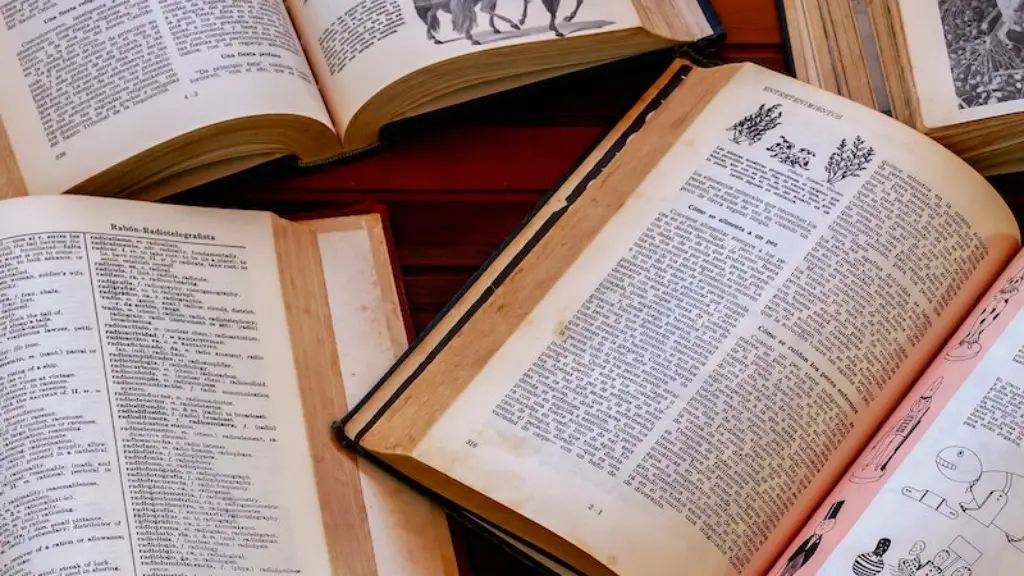What Inspired Emily Dickinson to Write Poetry?
Emily Dickinson is one of the most famous American poets of all time. Born in 1830 in Amherst, Massachusetts, Dickinson was prolific and well-known for her hauntingly evocative and idiosyncratic writing style. But where did this creative motivation come from? What inspired Emily Dickinson to write poetry?
To answer this question, a closer look at Dickinson’s formative years is in order. Dickinson’s early life was marked by a deep commitment to religion, particularly Congregationalism, a Puritan faith with strict moral precepts. This spiritual atmosphere developed Dickinson’s character, but it was at the same time confining. A need to express her own views and passions, perhaps inspired by her upbringing, could be a source of Dickinson’s creativity.
In addition to her faith, Dickinson was also greatly influenced by her strict academic education. At Mount Holyoke Female Seminary, Dickinson was exposed to traditional forms of poetry and her poetic genius began to take shape. She was also greatly influenced by the religious writings of her family and friends. Through absorbing these works, Emily Dickinson epitomized a deep spiritual connection which strongly resonates in her poetry.
During the course of her life, Emily Dickinson experienced the tragedies of death and heartache. Several of her close relatives, including her brother and father, died in her lifetime. Heartache also marked Dickinson’s life, as she was in love with a married man whom she could never be with. It could be argued that such tragic experiences, while devastating, also provided the fuel to Dickinson’s inspiration.
Emily Dickinson was also renowned for her contemplation of death. Dickinson found beauty and power in life’s transience and explored the idea of death being a gateway to life. This metaphysical concept had profound effects on her writing and helped Dickinson envision life as something more than a series of tragedies and misfortunes.
As a whole, many different experiences and encounters shaped Dickinson’s work and inspired her to write poetry. Alone in her bedroom for much of her life, Dickinson needn’t of been an isolated poet. The rich life she lived and the people she encountered are at the heart of her creativity and genius.
Love Lost
Often overlooked, but critically important, is the love Dickinson lost. Emily Dickinson had a brief romance with a married reverend, whom she intimately corresponded with under the pseudonym of “Ned”. It’s highly likely that this experience shaped Emily’s perspective on love, loss and loneliness and that these themes feature repeatedly in her works.
While the nature of their relationship is highly speculative, it’s not hard to imagine the pain and longing that Dickinson must of felt. ‘Heart, We Will Forget Him!’ is a popular and heartbreaking poem symptomatic of this. It’s thought to be derived from the ill-fated aftermath of this love.
It’s clear that despite being highly personal in many ways, Dickinson’s vast emotional experiences are universally applicable. Her feat of transforming her own sense of tragedy and loss into something that can speak to the soul of millions is no small deed.
In her endless exploration of life, death and love, Emily Dickinson has left an indelible legacy. The tragedy and sorrow of her life ironically gave way to some of the most beautiful and powerful poetry in the English language.
Mental Illness
It’s been speculated by some historians that Emily Dickinson was mentally ill or suffered some form of mental distress. During the course of her life, Dickinson exhibited extreme behavior with regards to socializing. She withdrew from almost all company, communicated with close friends and relatives via cryptic letters and hardly ever left her house.
It’s thought that aspects of Dickinson’s mental illness and eccentric behavior influenced her work and helped to create a sense of haunting seclusion that pervaded her work. Though we can’t be sure if her writing was directly inspired by greater psychological concerns, we can certainly recognize the importance of Dickinson’s enigmatic behavior in creating part of her poetic character.
In a similar vein, certain cerebral landscapes of Emily’s upbringing may have played some role in the structuring of her thoughts and the subsequent crafting of her poems. Emily was born into an affluent and intellectual New England family; her father was a lawyer and a state treasurer.
Therefore, Emily’s mental agility and keen visualisation, which contribute greatly to her poetry, may also have been unconsciously instilled by the environmental pressures of her teenage years.
The Implications of Gender
The fact that Emily Dickinson was a female poet can also not be overlooked, as gender issues have long informed literary trends. Importantly, female authors before Dickinson were rarely awarded the critical success and recognition they deserved.
The exclusion of women from the public sphere saw modesty and silence placed upon them. Despite the fact they were denied access to the intellectual environment, Emily Dickinson and women like her recognized the power of the pen and transferred their thoughts to the pages.
As such, the presence of Emily Dickinson’s work had broader implications for the cause of feminity. Dickinson’s work is a testament to the immense potential inherent in women, and for that we should be forever grateful.
The Death of Religion
The passing of religious dominance and the emergence of new forms of writing is also vital to understanding Emily Dickinson’s success. She embodied the conflicts between traditional Christian interpretations and the new secular philosophies of the 18th century. Although the loss of religion was a source of grief to Emily, it provided her with the opportunity to question ethics and explore personal identity in her poems.
This personal struggle was deeply profound and informed Dickinson’s anti-conformism. Therefore, this belief was also intimately connected to her writing, which was often heavily criticized for being too controversial.
The significance of virginity to the traditional community was undeniable and for a young poet to express a distinctiveness to the traditional way of life was practically a taboo. Yet it’s this defiance that is so inspirational and unites us to Emily Dickinson’s genius.
Nature and Contentment
Though Emily Dickinson explored human relationships and their often bitter effects in some of her work, nature is an essential part of her poetry. Many of Dickinson’s poems are profoundly inspired by her love of nature and the tranquillity it brings. She orients her best works on exploring contentment and serenity on a metaphysical plane.
Indeed, vivid descriptions of nature, such as fields and birds, abound in Dickinson’s catalog. This is perhaps an attempt to find peace amongst the frenetic chaos of human life. We know from Dickinson’s letters that she spent much of her life in her garden, which is again indicative of the connection she felt with nature.
In her poem ‘It was not Death for I stood up’, Dickinson’s faith in the ever-sustaining power of nature is restated. She also emphasizes that ultimate understanding comes from her communion with nature, which represents a moment of profound contentment.
Ultimately, there are many sources which contributed to Dickinson’s creativity and prolific abilities. While some of these influences were tragic, they permitted Dickinson the freedom to express her thoughts in the most transparent and honest way.





